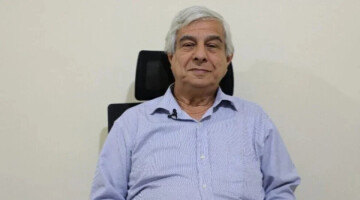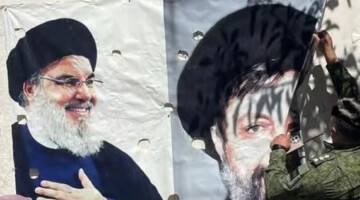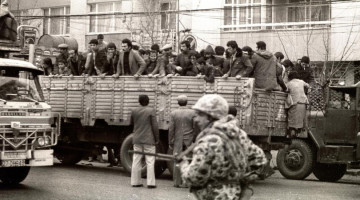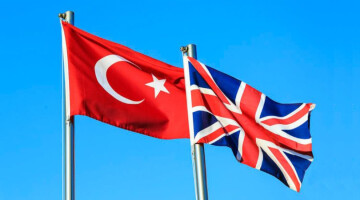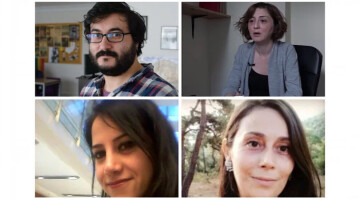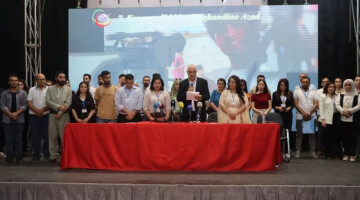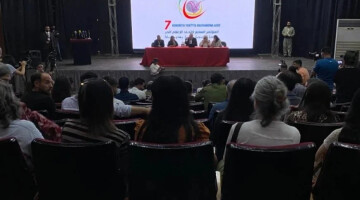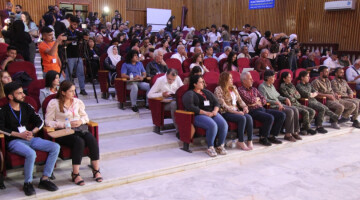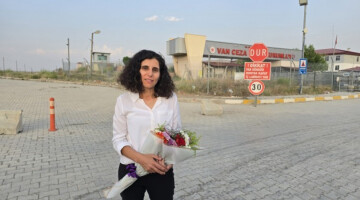The media landscape in Turkey was once considered diverse. After almost 20 years of Erdoğan's reign, hardly anything is left of it: Critical reporting is considered a minefield, at least 95 per cent of journalism has been brought into line. Only a few Kurdish and left-wing media institutions strive for independent reporting despite massive repression. This also explains why the regime keeps tightening the reins on them. More than 80 journalists are currently behind bars in Turkey. Most of them are media workers in the tradition of the free Kurdish press. They are at the centre of repression in Turkey and are systematically subjected to terror trials in order to domesticate them.
The policy of "silencing" has been in place since the 1990s. An atmosphere of fear was created, where even extra-legal executions of Kurdish media workers whose reporting was outside the government's perspective were part of the agenda. The methods of repression may have changed - instead of forced disappearances from life, critical media workers are imprisoned for years. What has remained the same is the courage of the Kurdish media to stand up to the rulers despite everything and report on what is happening.
BLOW AGAINST LEADING JOURNALISTS
"Sixteen of these courageous people dedicated to the Kurdish press have now been in prison without charge for six months to the day" - said the co-chair of the Dicle-Fırat Journalists' Association (DFG), Dicle Müftüoğlu, at a rally in the Kurdish metropolis of Amed (tr. Diyarbakir) on Friday. The gathering, which took place in front of the Palace of Justice, was supported by the Mezopotamya Women Journalists' Platform (MKGP) as well as political and civil society groups active in the region. The arrested journalists in question are the director of the women's news agency JinNews, Safiye Alagaş, the co-chair of DFG, Serdar Altan, the editor of the news agency MA, Aziz Oruç, the two editors of the Kurdish-language newspaper Xwebûn, Mehmet Ali Ertaş and Zeynel Abidin Bulut, the presenter and former MA editor Ömer Çelik, the presenters Neşe Toprak and Elif Üngür, the cameramen Mazlum Doğan Güler, Ibrahim Koyuncu, Abdurrahman Öncü, Suat Doğuhan, Ramazan Geciken, Lezgin Akdeniz and Mehmet Şahin, as well as Remziye Temel, accountant of Piya Production.
STILL NO INDICTMENT
The journalists are all being held in two high-security prisons in Amed, charged with "membership of a terrorist organisation". As political prisoners, they are also subject to particularly severe prison conditions. The Turkish authorities consider their involvement with Kurdish media as "press work" for the Kurdistan Workers' Party (PKK). Nevertheless, there is still no indictment against them.
"THE FREE PRESS DOES NOT BEND"
Speaking at the rally, Dicle Müftüoğlu, an editor for MA, stated: "There is no evidence of alleged crimes. The legal action against our colleagues is pure arbitrariness, the accusations are contrived and their arrest is politically motivated. In countries where there is no freedom of expression, media workers are the biggest risk group anyway. Therefore, under a regime led by the AKP-MHP coalition, it has become the norm to turn critical reporting into terrorism in order to silence the media. However, freedom of thought and expression are the basis of journalism. Since it is mainly the Kurdish media that report oppositional, they are also the most affected by repression."
The DFG chairwoman stood in front of a banner with the inscription "The free press does not bend", on which the photos of a total of 26 imprisoned journalists were also displayed. After the first repressive strike in June, ten more Kurdish media workers were arrested on terror charges at the end of October.
"ATTACK ON FREEDOM OF EXPRESSION AND PRESS"
Müftüoğlu called the operation against her colleagues an "attack on freedom of expression and freedom of the press" and called on the Turkish judiciary to immediately release the arrested journalists. She added: "The Kurdish press will continue to follow the path paved by pioneers like Musa Anter and Gurbetelli Ersöz. We will not be deterred. Freedom for journalism."





